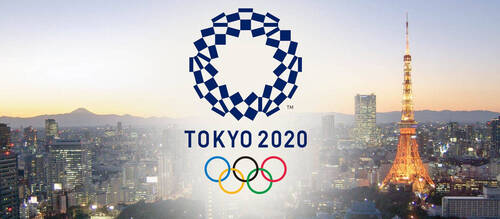The International Jumping Riders Club since 1977 is the voice of the showjumping riders from around the world.
International Jumping Riders Club
TOKYO 2020 TO ORGANISE INNOVATIVE AND ENGAGING GAMES
DURING ITS FIFTH VISIT TO TOKYO (11-13 DECEMBER), THE INTERNATIONAL OLYMPIC COMMITTEE (IOC)’S COORDINATION COMMISSION HEARD UPDATES FROM THE TOKYO 2020ORGANISING COMMITTEE ON THEIR PLANS TO MAKE THEIR OLYMPIC GAMES THE MOST INNOVATIVE AND ENGAGING GAMES TO DATE.
“The Tokyo 2020 Organising Committee is committed to ensuring that the Olympic Games not only benefit the region for years to come, but that they are also an unforgettable experience for the Japanese people, by creating interactive initiatives both in the lead-up to and at the Games themselves,” said IOC Coordination Commission Chair John Coates. “We left Tokyo confident yet again that preparations are well underway to host a fantastic Olympic Games.”
From its campaign to encourage Japanese people to donate their used electronics for the creation of the Tokyo Olympic medals, to the call for the public to submit ideas for the Olympic and Paralympic mascots, Tokyo 2020 has consistently produced campaigns that involve the citizens of Japan.
During the Coordination Commission meetings, the Organising Committee rolled out the next phase of the mascot selection process by asking 6.5 million children at primary schools across Japan to vote for their favourite mascots over the next 10 weeks. In addition to engaging Japanese youth, Tokyo 2020 will use the selection process to educate children about the values of the Olympic and Paralympic Movements.
With the approval of five new sports and an exciting event programme, announced earlier this year, these Games were already set to be the most youth-focused, urban and gender-balanced Olympic Games to date.
Tokyo 2020 now plans to optimise the innovative Olympic sports programme for the benefit of the public, with opportunities such as inviting people not only to watch the sports, but to experience them via sports initiation zones adjacent to competition venues.
After visiting the Aomi and Ariake venues, which will host the new events basketball 3x3 and sport climbing, as well as BMX racing, BMX freestyle and skateboarding, respectively, Tokyo 2020, local stakeholders and members of the Coordination Commission met to explore further ideas for these venues.
The Coordination Commission also visited the sites for the Olympic Gymnastics Centre and canoe slalom course, both of which have developed rapidly in recent months.
In addition to engaging Olympic fans on site, Tokyo 2020 will use new technology and media platforms to ensure Olympic fans everywhere can take part in the Olympic atmosphere.
“During this Coordination Commission visit, we had an opportunity to strengthen our partnership with local governments, including those in the disaster-affected prefectures,” said Tokyo 2020 President Yoshiro Mori. “Also, members of the IOC Coordination Commission who had previously visited Fukushima shortly after the earthquake remarked that they had experienced warm hospitality while there. They also commented that they are looking forward to visiting the region again in 2020, almost 10 years after the disasters, and to seeing how the Games have contributed to the reconstruction of the area.
“With us having aimed as far as possible to utilise existing facilities, 40 per cent of the Tokyo 2020 Games venues are now located outside Tokyo. Therefore, cooperation with local governments has become extremely important. We will continue working closely with the Tokyo Metropolitan Government, the Japanese national government, local municipalities, the Japanese Olympic Committee, the Japanese Paralympic Committee and other related organisations.”
The local organisers also expanded on their vision to use the Olympic Games for environmental reform in unique and collaborative ways, such as cooperating with the Tokyo Metropolitan Government’s urban cap-and-trade programme. Implemented in 2010, the programme has already resulted in a 26 per cent reduction in carbon emissions, through working with owners of large-sized buildings and commercial facilities in Tokyo to meet energy-saving and emission-reduction requirements.
The Commission also discussed a number of other areas of Games preparations, including the second version of the budget; services to athletes; support to National Olympic Committees, International Federations, the media and spectators; people management; marketing; and the Paralympic Games.
###
The International Olympic Committee is a not-for-profit independent international organisation made up of volunteers, which is committed to building a better world through sport. It redistributes more than 90 per cent of its income to the wider sporting movement, which means that every day the equivalent of 3.4 million US dollars goes to help athletes and sports organisations at all levels around the world.
###
press release

